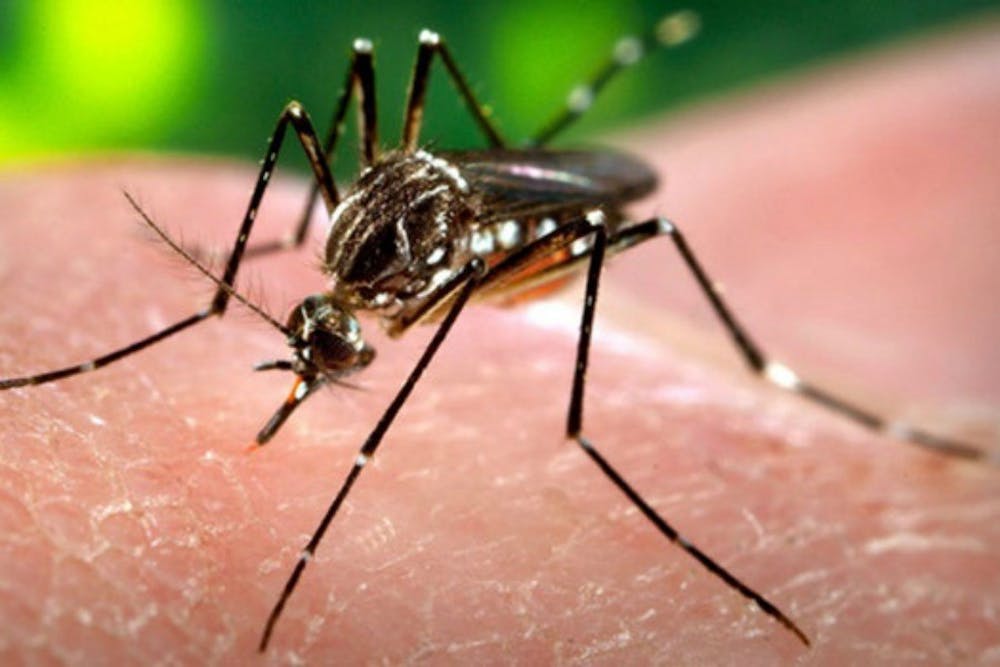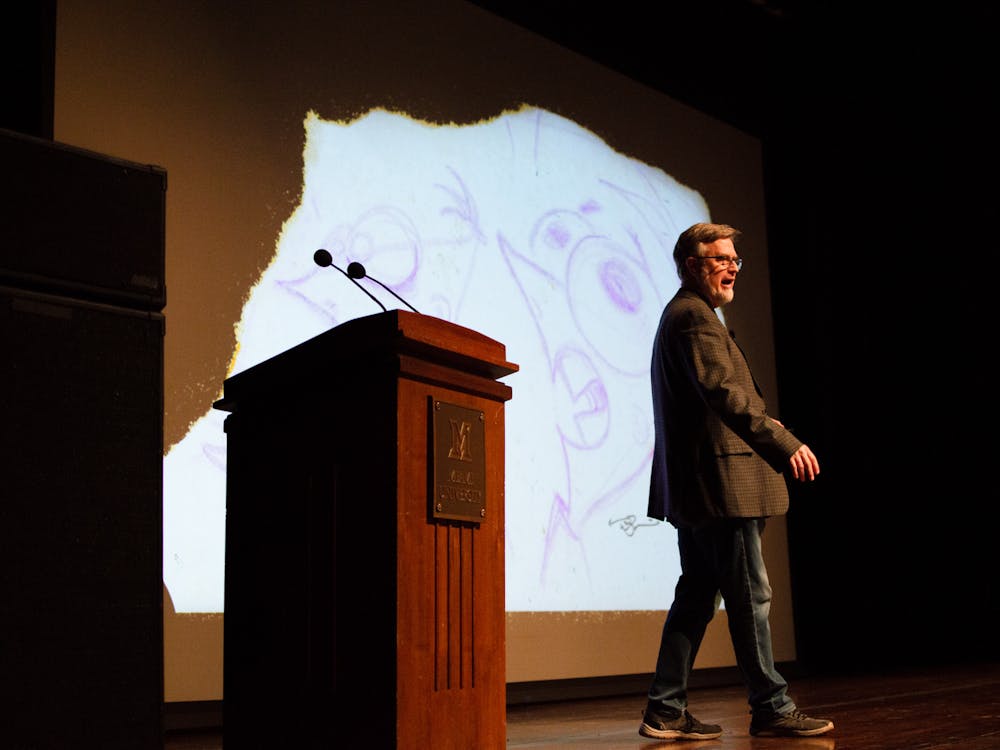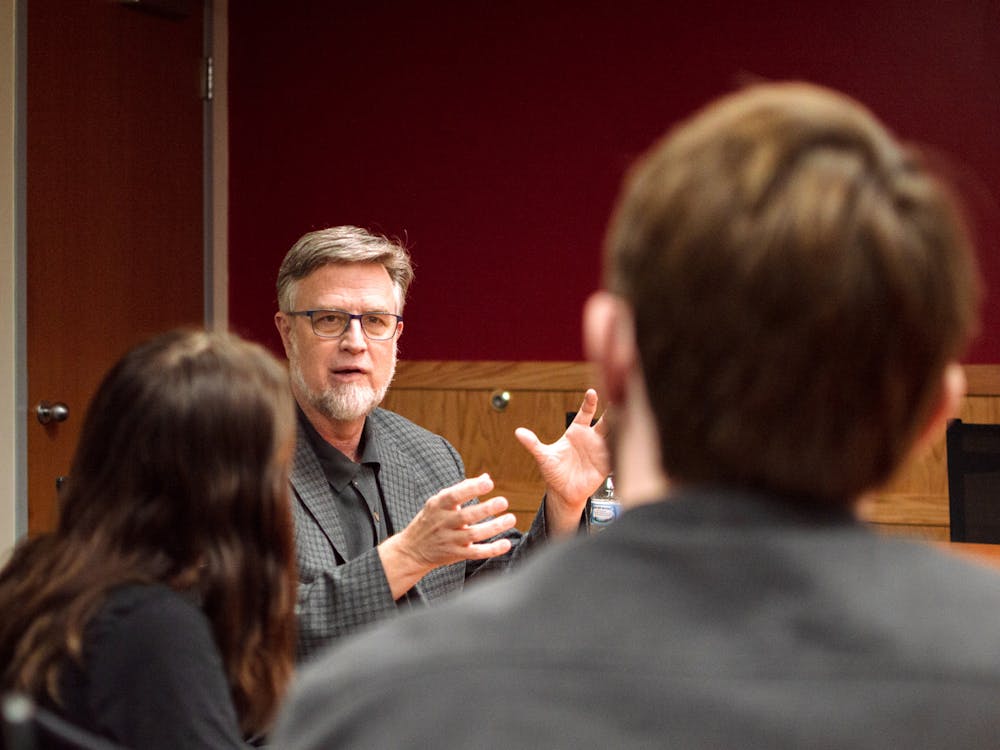By Morgan Nguyen, Senior Staff Writer
Worry about the Zika virus is spreading faster than the illness itself. Zika is a mosquito-borne illness first identified in Uganda in 1947 and has been in Africa and Asia for decades; it's gained international attention due to a recent outbreak in Brazil. Zika was first documented in the country last May and spread quickly, as epidemics do.
Certain students and faculty at Miami University - thousands of miles away from the outbreak in Latin America - feel the indirect effect of the outbreak.
"When I went home for winter break, the subject [Zika] was definitely the focus of many media outlets," said Kristie Cordeiro, a first-year with family in Brazil. "Most of the population, however, is not very concerned with contracting the disease, since the symptoms are rarely noticeable - except on pregnant women."
The virus is most worrisome for its associations with microcephaly in infants born to infected mothers. Such cases are most prevalent in Brazil, in the northeastern state of Pernambuco, where 646 were reported by November 2015. This prompted Brazil to declare a health emergency, as on average only nine out of 129,000 annual births are microcephalic in Pernambuco.
The Zika virus has existed for some time, but due to minimal symptoms in the past, much more concern was directed toward dengue and chikungunya - diseases spread by the same mosquito vector but which are considerably more painful.
Dhananjai "DJ" Rao, an assistant professor in the Department of Computer Science and Software Engineering, works on computational epidemiological models for all three of the aforementioned viruses.
"There's a growing interest in the scientific and policy community to be able to do forecasting of epidemics," Rao said. "It helps with planning different strategies and investing finite resources."
Rao explained the model is similar to weather forecasting in that if one has advanced knowledge of certain coming events, he/she can better prepare to face that event. The model takes into account an enormity of factors and is held on supercomputer.
"We create an in silico ecosystem that has the vectors [mosquitos] and humans, and analyze the natural lifecycle," Rao said. "It reflects key properties we'd see in the real world. We can make changes [to variables] in the model and map those into the real world to help the epidemic and help people."
Those variables include weather data, mosquito prevalence data, population and socioeconomic statuses, human population, and air travel/traffic. The forecast is precise down to a 10-mile radius - the size of a large city or county.
In part due to the fact that Zika has no cure and doctors cannot provide immediate relief, Rao found the reporting rate of the illness seems to be highly correlated with socioeconomic status. Poorer countries had only a 20 percent report rate.
Enjoy what you're reading?
Signup for our newsletter
Rao is about halfway finished with completing his Zika computational epidemiology model.
"We're getting close to being able to generate forecasts for Zika," Rao said. "I have one student working to set up a website to put the forecasts out, and hopefully translate them into French and Spanish."
As Rao prepares to assist with Zika virus on a large scale, others feel the acute effect.
"I had a friend who got infected," said Paula Gândara, a professor in the Department of Spanish and Portuguese. "She wasn't pregnant, so it's all good."
Gandara has family in Brazil and spent part of her childhood growing up there. She added that the virus has spurred increased talk and a push to legalize abortions in Brazil.
"There are areas in the northeast of the country that have seen a ridiculous increase in malformation [microcephaly]," said Gandara. "There are women making abortions without knowing if the fetus has any malformation."
The risk of microcephaly is causing a new group of women to demand abortions be legalized. Gandara seemed displeased with the country's response to the virus.
"Information on how to prevent Zika is not widely known," Gandara said. "The government started doing some efforts lately, but the damage has already been done."
Miami students studying abroad are at minimal risk of contracting the virus.
"We currently have no students on programs in Brazil," said Kevin Fitzgerald, one of the study abroad advisors. "Miami University is advising any student studying abroad in a high-risk area not to get pregnant, which is pretty standard advice anyway."
Aside from taking measures to prevent mosquito contact, hopes for dampening the spread of the Zika virus rest heavily in forecasting models.
"The community is building these systems to establish proof of concept, and then we can transition and put out forecasts of how things are going to look," said Rao. "People can plan for these issues. If you're going for spring break, I'll be able to tell you places that are good, bad and ugly. The goal is to minimize the impact of Zika."




